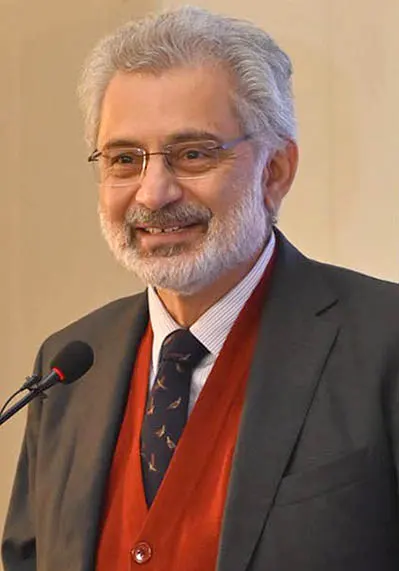Chief Justice of Pakistan Qazi Faez Isa said on Saturday that the practice of taking every matter to the Supreme Court must end. Addressing a ceremony for the launch of the Federal Judicial Academy’s e-campus in Islamabad, he stressed the need to raise the status of the lower courts in order to reduce the burden on courts higher up.
“This concept that has developed in the country, of taking virtually every matter right up to the SC before one is satisfied, must come to an end if we want this system to survive,” he said.
He noted that the first point of contact with a litigant is not the SC or high courts, but rather a civil judge or judicial magistrate, which is why their status must be raised so that their ruling is “acceptable to peers and superiors”.
The CJP said he was pleased to see various technologies being used in the apex court, particularly the live broadcast of proceedings, which he termed an educational tool.
“I hope confidence is established in the common citizen that he is seeing justice being done. He may not agree with us, but he will see how it is being done,” the CJP said, adding that it brings about a level of transparency and openness.
The CJP also praised the efforts of Justice Mansoor Ali Shah, who he appointed expert adviser to the FJA, which, he termed an institution that brings about cohesiveness, connectivity and communication in the country’s judicial framework.
“We look to [the FJA] to ensure that public confidence in the judiciary is raised, that people have confidence in courts, and that the [FJA] will ensure fairness and that all lawyers are treated with respect,” he said.
He acknowledged the efforts of some 48,000 court staff across the country, emphasising that without them, judges may flounder.
He also requested the various provincial chief justices to ensure that court staff receive adequate training and reproduce at a provincial level what has been done by the FJA.
Qazi Faez Isa said that not every citizen of the country needs to agree with the court’s rulings but justice being served should be apparent in the decisions.
“Every citizen has the right to disagree with the decisions of judiciary. It isn’t necessary that the citizens concur with [the decisions] but justice should be seen to be done in judicial decisions,” the top judge said.









